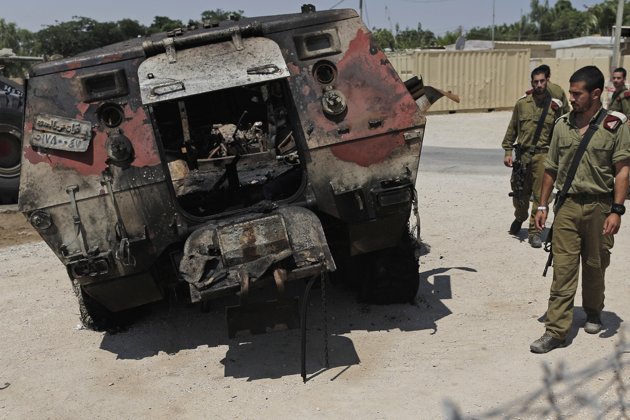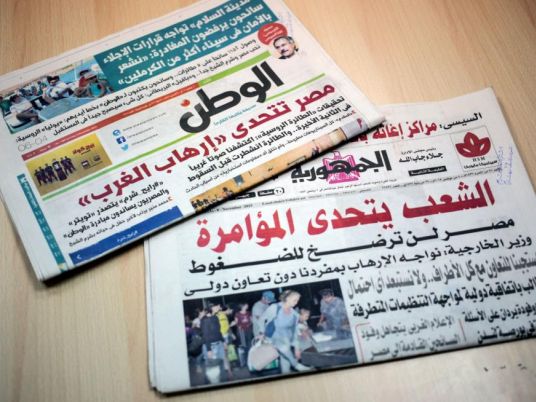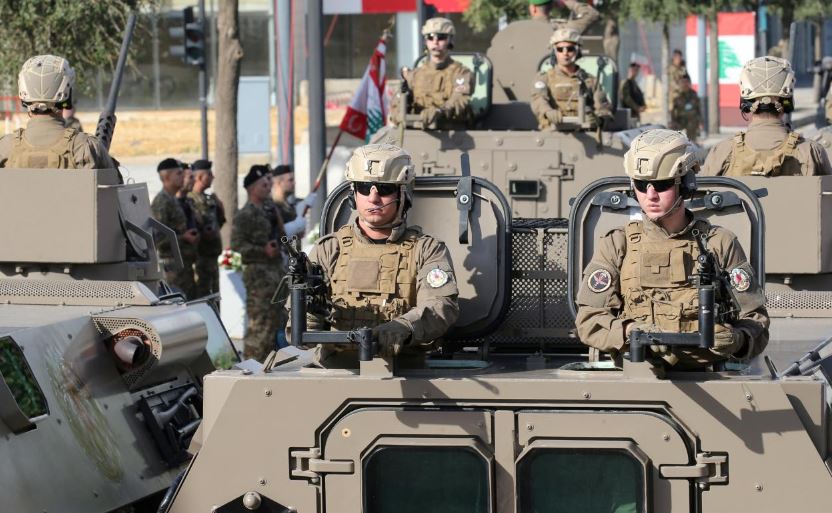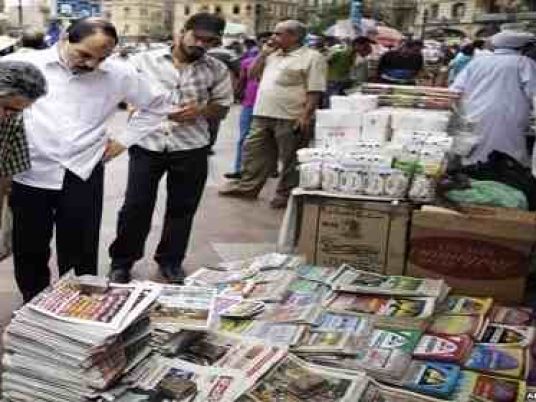
Sunday’s attack in Sinai near Rafah is the focus of Tuesday’s news. Speculation over who carried out the attacks range from involvement by the Israeli government, Palestinians, and Egyptian militant organizations.
The top headline of independent newspaper Al-Shorouk reads, “35 murderers carried out Rafah massacre.” Among many features and reports in Al-Shorouk, Lieutenant Yousry Qandil, the head of the navy’s information forces in the October War says that there is no need to rush to war with Israel, and it is important to address internal unrest and economic concerns that would cripple any military action.
Al-Shorouk described the details of Sunday’s horrific attacks with soldiers being held at gun point and forced to drive a tank full of explosives. Bullets were scattered and soldiers ran in all directions in the chaotic scene. Reports of heightened security on land, air and sea and detailed descriptions of new security measures and arrests are described as “unprecedented since the October war.”
The state-run newspaper Al-Akhbar says President Mohamed Morsy and Defense Minister Hussein Tantawi spoke to those at the Rafah border. The armed forces said the terrorist attacks occurred at the same time as a military tank was attacked on the Gaza side of the border, in the Karm Abu Salem area. Al-Akhbar reports that Morsy says “we will get our revenge for our sons in Rafah and we will demolish the terrorist cells completely.”
The state-run daily reports that eye witnesses say the gunmen attacked the soldiers while they were performing Sunset prayers. “The attackers were in three cars and were calling out ‘To Holy War, To Holy War.’ The dates were in the victim’s mouth as we carried them to the hospital.” A 19-year-old eyewitness says three cars with some eight people escaped after carrying out the attacks through the Karm Abu Salem crossing with Gaza.
While the ruling party’s paper, Freedom and Justice, quotes Yasser Ali, the president’s spokesperson as saying: “we cannot accuse anyone until our information is complete.” it accuses Israel in its opinion pieces.
In one opinion piece, Mohamed Gamal Arafa says the attack is one of the many negative effects of Camp David that limited Egyptian military control of the area. According to Arafa, the limits allowed Sinai, a somewhat empty expanse, to become a breeding ground for criminals. He said the limits also created a security vacuum, enabling what he calls “Zionist forces” the ability to carry out any plans they want.
The same paper carries a special feature on the Sinai events, in which it says the massacre reveals the extent of security negligence in the region. On the following page, a headline reads: “A difficult test for Morsy … the massacre reveals years of negligence from the removed (ousted President Hosni Mubarak).”
The Liberal opposition party paper, Al-Wafd reports on the events with skepticism of Prime Minister Hesham Qandil’s delayed reaction. One headline reads: “The military vows vengeance, Al-Azhar is angry and Qandil: The answer in a few hours.” Like Al-Akhbar, Al-Wafd publishes a full page spread heading with eyewitnesses recalling the militants yelling, “God is Great … to Jihad.” It reports of one of the victims at the hospital screamed out, “I’m alive.”
Al-Wafd also has sources saying Palestinians are involved in the crime and the “Salafi, Jihadi group” are the first suspects. The source says this specific group is conspiring to form an Islamic Emirate within the small province. Al-Wafd’s source also states the route taken was one known only to Egyptians.
The privately-owned paper Al-Watan spoke to the only living victim saying, “They were hitting us and screaming, ‘God is Great, you traitors.’”
While Sinai is the focus of these newspapers, Egypt’s electricity situation, sectarian strife in Dahshur, press freedom and other political activity also made the news.
Al-Shorouk reports that the minister of electricity and energy, Mohamed Balba, stopped electricity interruption in hospitals, water stations and the sewage system. He also highlighted the importance of an end to electricity theft. The daily also reports a crackdown on hijackers on Egyptian roads and stricter punishments for criminals.
Al-Shorouk reports that Bishop Pachomius, the acting patriarch, met with presidential advisor Fouad Gaballah and the governor of Giza, Dr. Ali Abdel Rahman, concerning the Coptic families from Dahshur that were forced to leave their homes after sectarian clashes led to the arson of their homes and businesses. They agreed that the families would return to their homes after being assured that investigations and action regarding the attacks will take place legally, as opposed to an informal tribal setting.
Al-Akhbar reports on politicians and writers warning of a siege on the media by Islamists, specifically the Muslim Brotherhood. A group of writers gathered to discuss the independence of the media and what they call saving history from being rewritten. The convention, which took place under the title, “A call to all patriots … press freedom is in danger,” discussed ways to stop unwanted government control over the media. Writer Gamal El Ghetany calls for a general boycott by the journalists to save the Egyptian nation.
Freedom and Justice, unknowingly responding to Al-Wafd’s criticism of Qandil’s silence reports on his visit with the Libyan Prime Minister to discuss economic cooperation of the two countries in the near future.
Egypt’s papers:
Al-Ahram: Daily, state-run, largest distribution in Egypt
Al-Akhbar: Daily, state-run, second to Al-Ahram in institutional size
Al-Gomhurriya: Daily, state-run
Rose al-Youssef: Daily, state-run
Al-Dostour: Daily, privately owned
Al-Shorouk: Daily, privately owned
Al-Watan: Daily, privately owned
Al-Wafd: Daily, published by the liberal Wafd Party
Youm7: Daily, privately owned
Al-Tahrir: Daily, privately owned
Freedom and Justice: Daily, published by the Muslim Brotherhood's Freedom and Justice Party
Sawt al-Umma: Weekly, privately owned
Al-Arabi: Weekly, published by the Nasserist Party
Al-Nour: Official paper of the Salafi Nour Party




